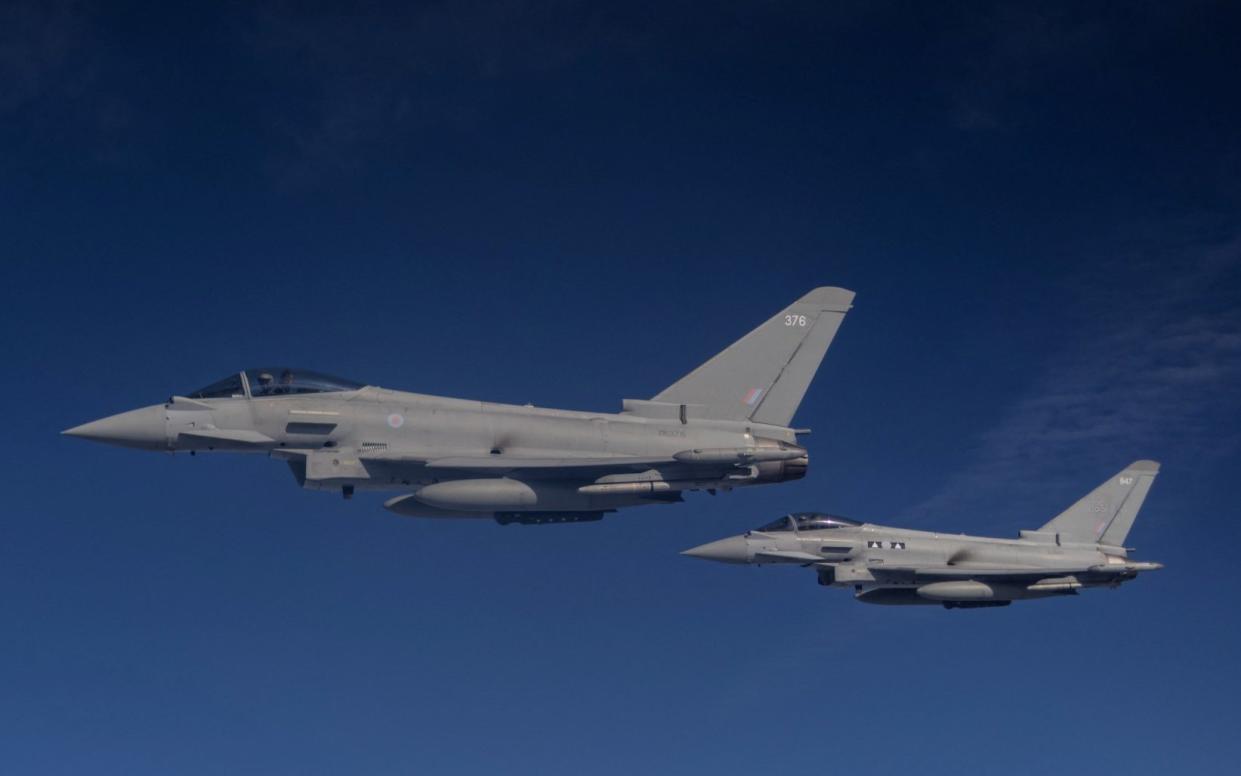Sending fighter jets to Ukraine is a no-brainer. Everybody wins but Putin

- Oops!Something went wrong.Please try again later.
- Oops!Something went wrong.Please try again later.
President Zelensky’s brilliant speech in Westminster yesterday unequivocally and unashamedly made the case for Nato-grade fighter jets to be sent to Ukraine.
In what is starting to feel like a repeat of the recent tank saga, what seemed impossible is taking on an unassailable momentum. As then, Britain is leading the West.
Yes, if we commit to sending jets it will take Ukraine months to receive them, but this is going to be a long war, and saying we will send them will be a huge blow to Russian morale.
Most would agree that the West was far too slow to make the decision on tanks. If they had been sent nine months ago, where would we be now? How many thousands of lives could have been saved, how many billions of dollars?
As I argued recently, tanks are the first half of the winning equation, and fighter jets the second half. So let me underline why they matter so much at this critical moment, and challenge some of those who are anxious about sending them.
Though they may be few in number, the British Typhoon fighters would inevitably unlock a much larger number of European Typhoons or F-16s, as the British tank did with European tanks. It’s true that as things stand we have very few fighters to spare, but it would still leave our ultra-modern F-35 jets to defend UK shores. As with tanks, these donations would give us an ideal excuse to invest in new fighter aircraft to replace them. I’ll get to that.
More importantly, the donations would signal the most significant demonstration to Putin that we are in this for as long as it takes. The Russians still believe if they can stick the war out as long enough, they will crack the western will to keep supporting Ukraine. As I write, the Russians are apparently preparing 500,000 conscripts to throw into the melee for a final serious attempt to break the will of the Ukrainians. If that fails and the Russian army knows that Western jets are on the way, that could be crucial in future calculations. It might even be another to make them consider the cost of fighting in the first place.
I think there is undue pessimism about the amount of time it takes to train pilots for these aircraft. It’s true that tanks are more my expertise rather than fighter jets. But my instinct is that many of the delays are due to safety concerns – something of a luxury, I would argue, for a country fighting for its life. If the time it takes to train a soldier to use a Challenger 2 tank can be reduced from six months to six weeks, then surely this can be sped up.
Where I do agree with the more cautious commentariat is that all of this has underlined the perilous state of our Armed Forces. But for some that means we should send nothing to Ukraine. I take the opposite view: sending little will only maintain the status quo – holding onto tanks and planes will mean that nothing is done to invest in the future. Instead we should send what we can spare, then invest and expand. To subscribe to the ‘do nothing’ camp is – consciously or not – to facilitate and promote our current woeful policy.
The first duty of the government is to properly protect the nation. Pound for pound we still have the best fighting men and women in the world, but at the moment our lightweight capability is simply insufficient. Ukraine should shake us out of our delusions.
Perhaps one of the more heartening sides of Zelensky’s surprise visit to London was the cross-party unity on display in Parliament for Ukraine. It should give hope to the millions like me around the country that, on what really matters, politicians can come together. I hope MPs do not waste the opportunity and seriously invest in the future – not only our Armed Forces, but in supporting Ukraine to the hilt for the vital months to come.
Col Hamish de Bretton-Gordon OBE is a former commander of the 1st Royal Tank Regiment.
He is a regular contributor to The Telegraph's daily podcast 'Ukraine the Latest' , which has over 22 million downloads. You can listen to our most recent episode, featuring Hamish, here.

